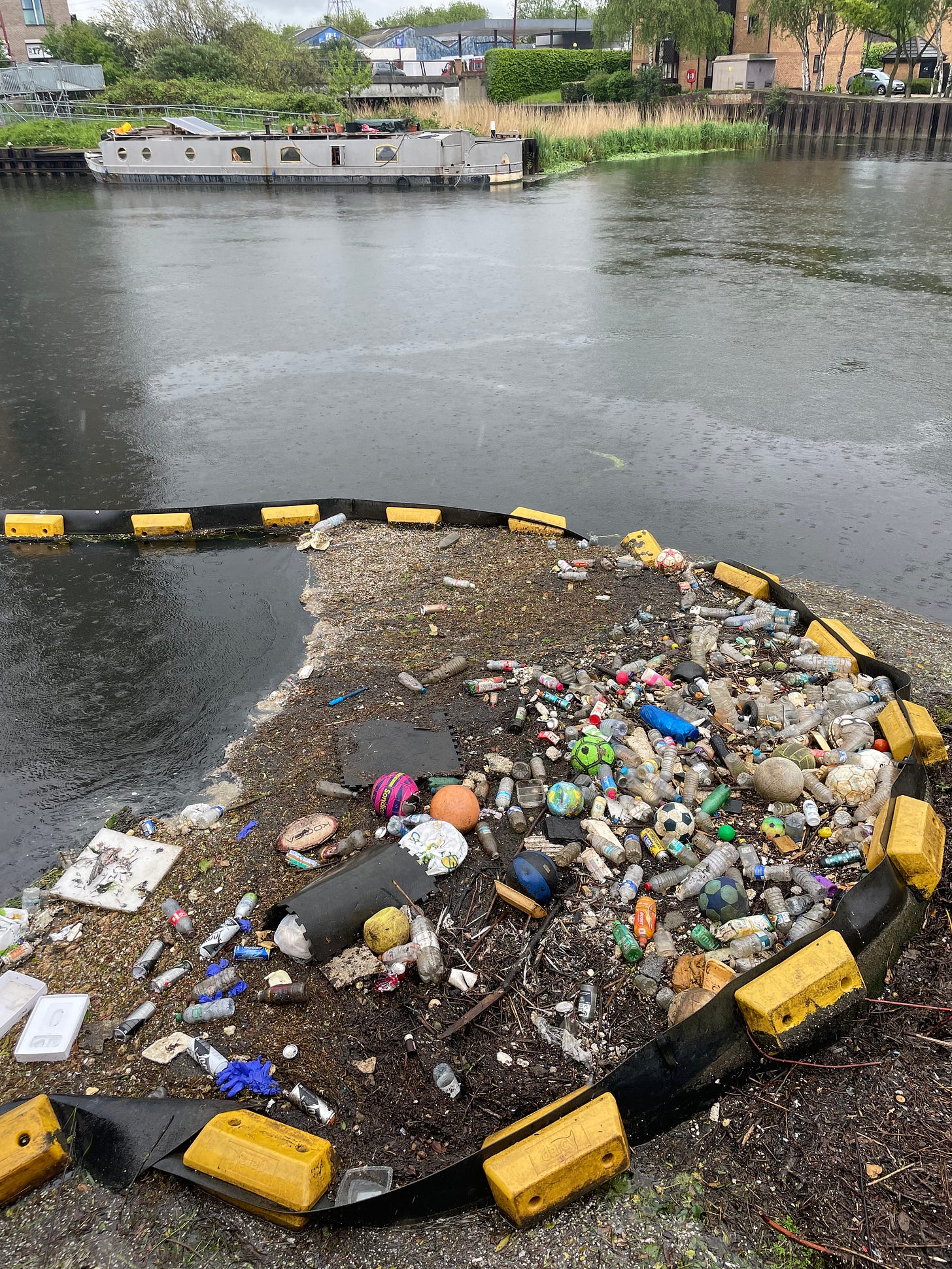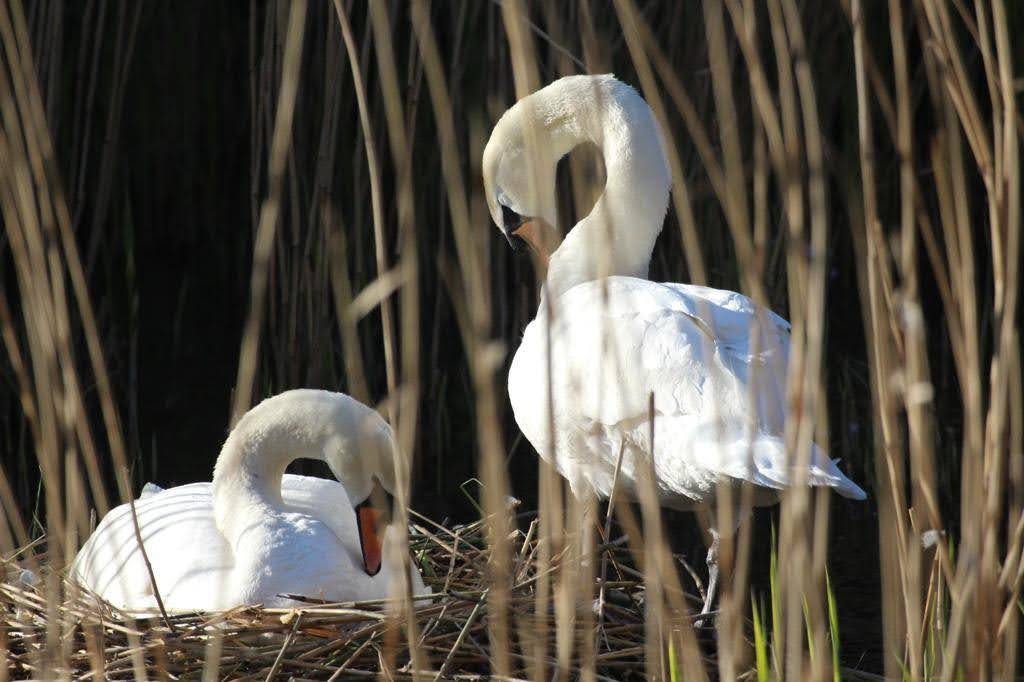The heart of the Earth
Why our wetlands are more important than ever.
It was World Wetlands Day last week, a moment to celebrate the incredible wetland ecosystems that underpin so much of life on Earth.
Wetlands are vital ecosystems that act as nature's safeguards, providing flood control, purifying water, and supporting human well-being by providing food, clean water, and livelihoods to millions of people around the world.
Wetlands also support around 40% of the world’s plant and animal species and are internationally recognized as key habitats for migratory waterbirds, forming a chain of critical stopover sites, providing them with both resting and feeding areas during their journeys.
- Jacques Trouvilliez, Executive Secretary, African-Eurasian Migratory Waterbird Agreement
I’m lucky enough to live next door to Walthamstow Wetlands in London, Europe’s largest urban wetlands and home to an abundance of bird, mammal and insect life.
It’s an internationally important stopover site on the routes of many migratory birds. Every year, enormous flocks of tufted ducks descend to wait out the colder months, and it is also one of the country’s largest heronries with hundreds of breeding pairs.
But what is it about wetlands that makes them so special?
The 211 hectares of Walthamstow Wetlands also supply fresh drinking water to 3.5 million people. Without it, the pressure on the city’s water supplies would be enormous. We rely on it for water to drink, cook, wash, clean - most of society’s freshwater come from wetlands and if it were to vanish tomorrow things would go downhill pretty fast.
Wetlands are arguably one of our most important natural carbon sinks, with damp peatlands storing twice as much carbon as all the world’s forests combined. They also make incredible natural defences to extreme weather events, acting as sponges and barriers to mitigate flooding, and reducing air temperature by several degrees Celsius.
If we are to give ourselves a fighting chance of getting through the worst impacts of climate change, we need as many supercharged wetland habitats as possible functioning the best they can.
So consider these key numbers from the Wildfowl and Wetlands Trust:
35% of our wetlands have disappeared since 1970.
Wetlands are disappearing three times faster than forests.
25% of wetland species face extinction.
Urbanisation, overexploitation and pollution are all dire threats severely diminishing the impact of wetlands today.
Litter and water pollution are persistent problems in urban wetlands, even with a small army of volunteers dedicated to regular clean ups.
Waste from business parks frequently enters the water upriver, a seemingly endless, unstoppable tide of polystyrene and plastic and chemicals and packaging materials all mixed with whatever people have discarded along the way.
Where I live, the river running parallel to the wetlands doesn’t have the same series of filters and personpower ensuring it’s kept clean. All that junk just flows right through the city, metres from nesting swans and coots and reed buntings.
What’s the solution to this?
A lot of waste comes from people just dumping their rubbish in the river. Tip: don’t do this. Easy for me to say and easy for you to agree, dear reader, but how many people going about their daily lives, rushing between appointments and stressing about work, stop to really think about the world around them on a conscious level? Can we really blame individuals for this?
Overcoming apathy requires education, and reminding people of the invaluable role wetlands play in keeping us healthy and watered and sane. As we’ve learned, wetlands aren’t just pretty things to look at - although that should be reason enough to try and keep them alive - and mistreatment of the environment stems from a misunderstanding of why we should care.
The second part is completely readdressing our relationship with consumption. I’ll do a deeper dive into transformational change in a later post, but trying to fish all of that stuff out of our waterways while corporations continue to produce thousands of tonnes of it is like trying to mop up Niagra Falls.
We have to turn that tap off, and we have to educate people why.
Because people love green and blue spaces, even if they don’t fully understand how important carbon sequestration is. People love the sound of song thrushes and warblers, even if they couldn’t name a single bird. And that’s okay. Love of our natural environment is within all of us. We are part of it, whether we want to be or not. It’s just that we’ve built ourselves a society where polluting is convenient and we’re encouraged to do it by enormous, profiting companies.
But water is the lifeblood of our world and wetland habitats are the heart. A living planet is the golden ray of sunshine through a gentle mist, a sparkle on the water’s edge, and the prehistoric cry of a grey heron, beating its mighty wings through the pale dawn.
What should we be doing if not trying to protect it?
Thanks for reading Urban Nature Diary. If you’d like to help protect and restore urban wetlands, consider volunteering at your local reserve or becoming a member of organisations like The Wildlife Trusts and WWT. Urban Nature Diary is not affiliated with either.






